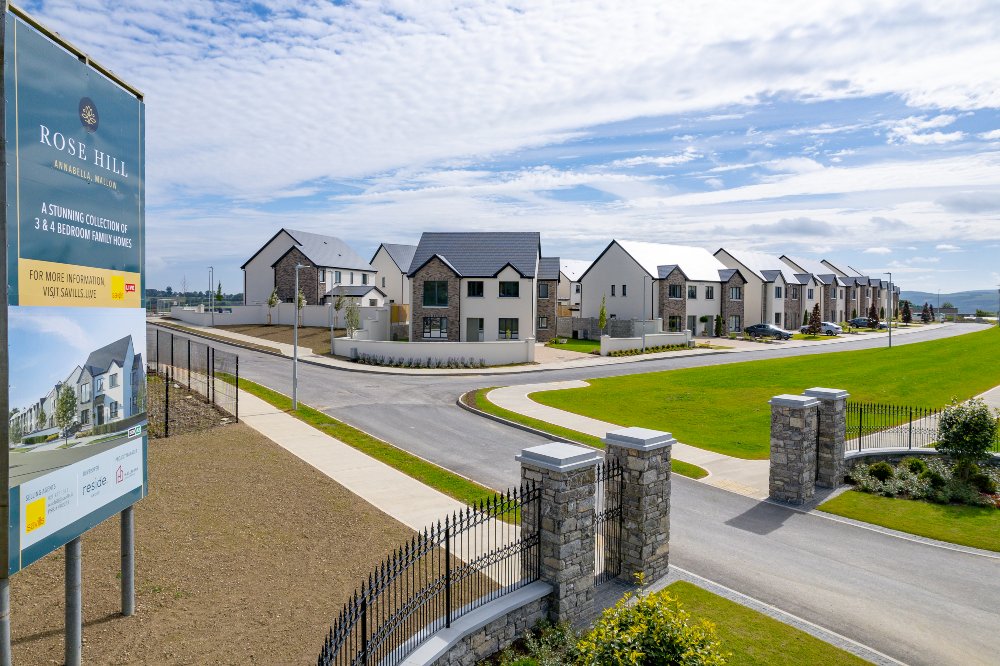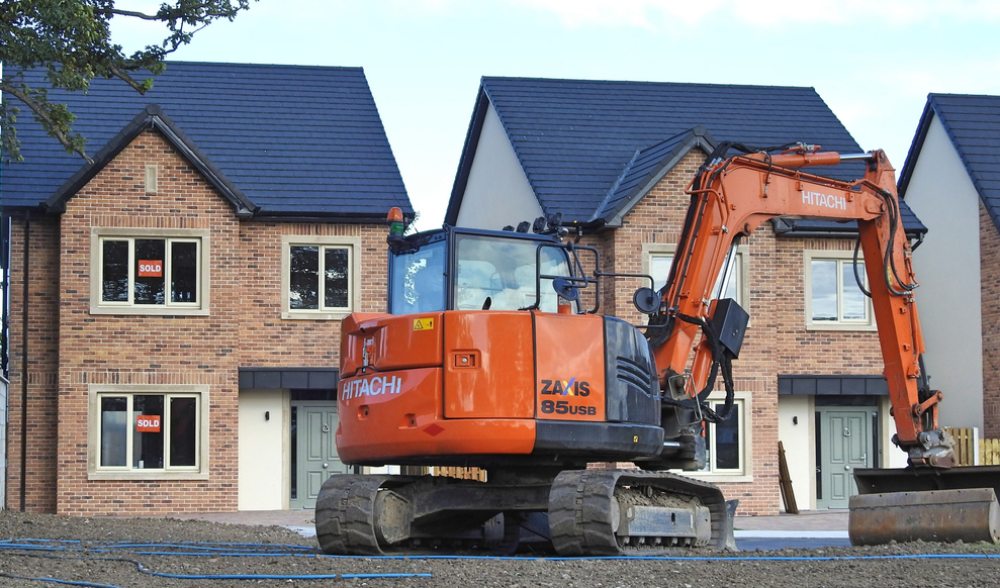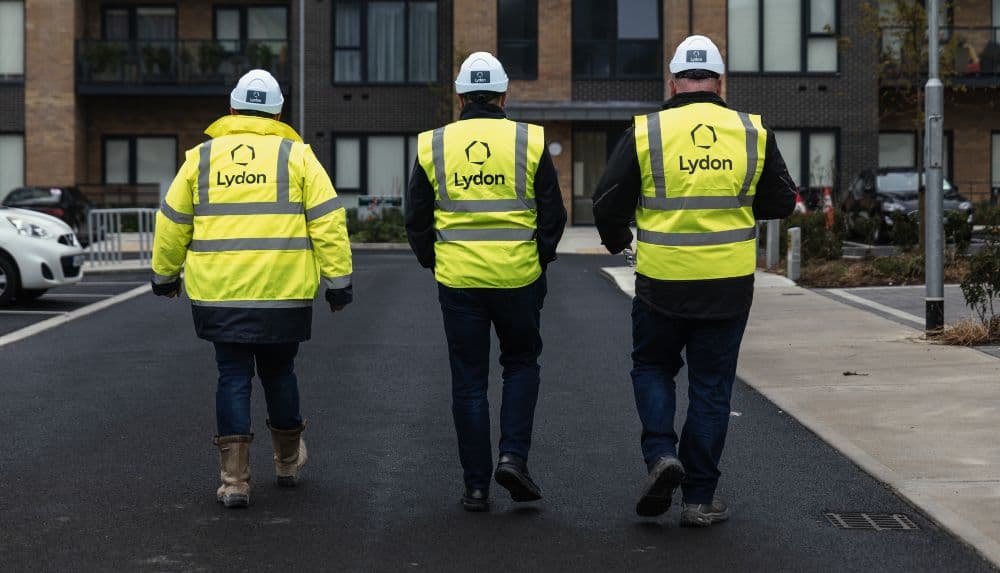Massive investment in housing needed between now and 2030.
Ireland requires a massive €122bn investment between now and 2030 to meet government housing targets, according to Deloitte’s latest Crane Survey Report released today.
The analysis reveals that €16.4bn is needed this year alone, rising to €24.1bn by 2030, to achieve the Irish Government’s ambitious target of delivering 60,000 homes annually.
“We’re simply not building enough to meet the needs of a growing population and a resilient economy”
However, the report warns that this target is unlikely to be reached due to declining planning permissions and subdued construction commencements.
Housing delivery falls short of targets
| Tenure | 2025 | 2026 | 2027 | 2028 | 2029 | 2030 | |
| Social | 4.8 | 4.9 | 5.3 | 5.7 | 6.0 | 6.1 | |
| Affordable | 2.0 | 2.0 | 2.2 | 2.4 | 2.5 | 2.5 | |
| Cost Rental | 1.0 | 1.0 | 1.1 | 1.2 | 1.2 | 1.3 | |
| Subtotal | 7.8 | 7.9 | 8.6 | 9.3 | 9.7 | 9.9 | |
| Private | 8.6 | 9.4 | 10.6 | 11.9 | 13.5 | 14.2 | |
| Total | 16.4 | 17.2 | 19.3 | 21.3 | 23.3 | 24.1 | 121.6 |
Table: Capital required (€’bn)
The report estimates that only 33,000 homes will be completed in 2025, significantly below the government’s target of 41,000. This follows a disappointing 2024 when just over 30,230 new homes were delivered – a 7% drop from 2023.
Planning permissions present an even starker picture, with only 32,400 homes granted approval last year, down 3% from 2023. This figure represents just two-thirds of the annual permissions needed to deliver 60,000 homes per year.
The decline was particularly pronounced in apartment developments, which saw a 39% year-on-year drop in planning approvals. Large-scale developments of 100 or more units accounted for only 32% of all planning permissions in 2024, down significantly from 56% in 2022.
Student accommodation crisis deepens
The student accommodation sector faces particular challenges, with only 895 purpose-built student accommodation bed spaces completed in 2024 – the lowest level since Deloitte began tracking in 2016. This represents a significant drop from 1,630 bedspaces delivered in 2023.
The limited delivery was concentrated in Cork and Dublin, with major developments including 620 bedspaces at NovelBottle Works in Cork and 190 bedspaces at The Residence on Prussia Street in Dublin.
Despite over 8,800 bedspaces having planning permission across Dublin, Cork, Limerick and Galway, viability constraints and planning delays are hampering development. This shortage comes as Ireland is projected to reach 240,000 full-time students by 2030, up from 206,365 in 2023/24, with international student numbers rising 33% since 2020.
Office market faces supply crunch
While Dublin office completions surged to 169,500 square meters in 2024 from 95,400 square meters in 2023, this increase masks underlying problems in the sector. The rise reflects completion of existing projects rather than new construction activity.
Only 63,350 square meters of office space is scheduled for delivery in 2025, with the pipeline severely reduced.
Most concerning is that 2027 may be the first year since 2015 with no new office space delivered in Dublin, with only one pre-let development at 1 Adelaide Road expected to complete.
Hospitality sector shows mixed signals
Hotel development slowed in 2024, with only 1,358 new rooms added – a 17% annual decline.
However, the construction pipeline has strengthened, with 4,060 rooms under construction as of Q1 2025, up from 2,850 rooms in the previous survey.
Dublin dominates this activity, including a 412-room development at Dublin Airport by Accor and The Arora Group.
Expert analysis: policy stability crucial
Kate English, chief economist at Deloitte Ireland, emphasised the scale of the challenge.
“We’re seeing cranes across the skyline, but not enough where they’re needed most. We need to increase output substantially, and the Deloitte Crane Survey Report outlines policy initiatives which focus on reducing the cost and therefore the viability of delivery, especially for apartments.
“What this research reinforces is that the biggest issue facing Ireland right now isn’t demand, it’s supply. Whether it’s homes, student beds, or affordable units, we’re simply not building enough to meet the needs of a growing population and a resilient economy.”
English stressed the importance of policy consistency: “A stable policy environment is crucial in Ireland, as inconsistency in housing policy will deter and dampen investor confidence in Ireland. Without stability, capital will be redirected to jurisdictions offering more predictable and investor-friendly environments. This is not a hypothetical risk, it is a market reality.”
Daniel Lockley, Deloitte Ireland’s Debt & Capital Advisory partner, highlighted the need for private investment.
“In order to meet the Government’s housing targets, we need to create an investment environment that provides certainty from a policy perspective. Demographic trends, along with Ireland’s resilient economy makes it, on paper, an attractive location with strong underlying fundamentals.
“International capital is on the side lines and if Government can create a stable and supportive investment environment, we will see increased investment across all tenure types. However, critical infrastructure delivery and enhancement of apartment viability needs to be at the core of any further policy decisions.”
Commercial property concerns
Regarding commercial property trends, English warned of future supply constraints.
“While the focus remains on delivering much-needed homes, we shouldn’t lose sight of concerning delivery trends in the commercial property market. With new office space expected to decrease dramatically this year and no speculative space delivered beyond 2026, supply of modern, high-quality spaces located in areas of demand is likely to become increasingly tight.”
She added: “This is difficult to perceive now in a market of double-digit vacancy, but a shortage of adequate office space could quickly become a reality in Ireland. This is more acute in regional locations outside of Dublin, where high construction costs make it very challenging to deliver new space. This will have a significant impact, as supply, or lack-of it, will impact where employers choose to locate or expand their workforce.”
-
Bank of Ireland is welcoming new customers every day – funding investments, working capital and expansions across multiple sectors. To learn more, click here
-
For support in challenging times, click here
-
Listen to the ThinkBusiness Podcast for business insights and inspiration. All episodes are here. You can also listen to the Podcast on:
-
Spotify
-
SoundCloud
-
Apple






